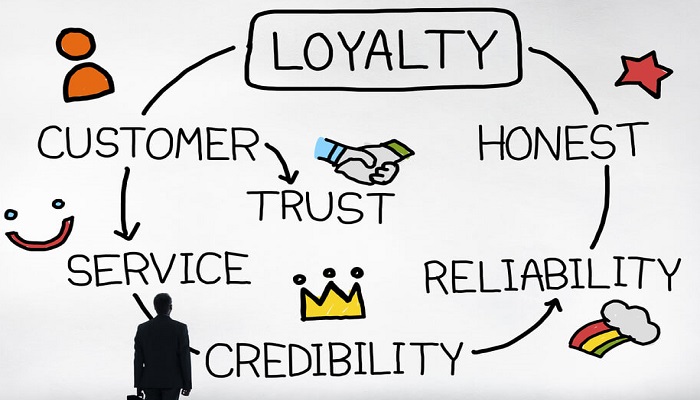This article explains five easy ways you can build trust in your online business without having issues.
Trust is vital to success in every business relationship. Building trust between your online business and your clients or customers could be achieved through several methods.
However, no matter which method you employ, you must let your customers know that their privacy is secure.
With the current reviews of safety breaches affecting major firms like LinkedIn, Tumblr, and some others, do not be shocked that users are becoming more protective of their data.
This implies that they may not trust sharing their data with companies online like in the past.
As a web-based business owner, what steps should you take to establish full trust and get your visitors or clients to be more open to sharing their data with your business?
How to Build Trust in an Online Business
Building trust is a critical component of a successful online business.
Trust instills confidence in your brand, products, and services.
Customers are more likely to make purchases and recommend your business to others when they trust you.
1. Establishing a Strong Online Presence
Building a Professional Website
Your website is often the first point of contact with potential customers. Ensure that it is well-designed, with a user-friendly interface, that is mobile responsive.
A professional-looking and secured website can immediately establish credibility.
Crafting an Engaging About Us Page
Share your story, mission, and values on your “About Us” page. This personal touch helps customers connect with your brand on a deeper level.
2. Transparency is Key
Clear Pricing and Policies
Be upfront about pricing, shipping costs, and return policies. Hidden fees or confusing terms can erode trust quickly.
Open Communication Channels
Provide multiple ways for customers to reach you, such as email, chat, and phone. A responsive customer support team demonstrates your commitment to communication.
3. The Power of Customer Reviews
Encouraging Positive Reviews
Encourage satisfied customers to leave reviews. Positive reviews are powerful social proof.
Handling Negative Feedback Gracefully
Respond to negative reviews professionally and seek resolutions. This shows that you value customer feedback and are willing to make improvements.
4. Secure Online Transactions
Implementing Trustworthy Payment Gateways
Use reputable payment gateways to ensure secure transactions. Customers need to feel confident that their financial information is safe.
Ensuring Data Security
Invest in robust cybersecurity measures to protect customer data. A breach can severely damage trust.
5. Quality Content and Information
Blogging and Information Sharing
Provide valuable content through blogs and articles. Share industry insights and useful information that showcases your expertise.
Fact-checking and Citing Sources
Maintain accuracy in your content. Cite sources and avoid spreading false information.
6. Social Media Engagement
Authentic Social Media Presence
Engage with your audience authentically on social media. Share behind-the-scenes glimpses and respond promptly to comments and messages.
Responding to Comments and Messages
Engage with your audience by responding to comments and messages promptly. This interaction builds a sense of community and trust.
7. Consistency in Branding
Cohesive Brand Identity
Maintain a consistent brand identity across all platforms. This helps customers recognize and trust your brand.
Uniform Messaging
Ensure that your messaging aligns with your brand values and mission. Consistency reinforces trustworthiness.
8. Provide Exceptional Customer Service
Quick Response Times
Respond to customer inquiries and concerns promptly. Fast, helpful service leaves a positive impression.
Problem Resolution
Resolve customer issues efficiently and professionally. A swift resolution can turn a dissatisfied customer into a loyal one.
9. Building Partnerships and Collaborations
Partnering with Reputable Brands
Collaborate with other reputable brands to expand your reach. Partnering with established names can boost your credibility.
Joint Ventures and Cross-Promotions
Explore joint ventures and cross-promotions to tap into new markets. These partnerships can enhance trust through association.
10. Track Record and Testimonials
Showcasing Success Stories
Share success stories and testimonials from satisfied customers. Real-life examples demonstrate your ability to deliver results.
Industry Awards and Recognitions
Highlight any industry awards or recognitions your business has received. These accolades can reinforce your expertise and trustworthiness.
11. Continuous Improvement
Gathering Customer Feedback
Actively seek feedback from customers and use it to make improvements. Showing a commitment to getting better builds trust.
Adapting to Changing Trends
Stay current with industry trends and adapt your business accordingly. Being up-to-date enhances your credibility.
12. Ethical Business Practices
Sustainable Business Operations
Operate your business ethically and sustainably. A commitment to ethical practices resonates with socially conscious consumers.
Community Involvement
Get involved in your community through charitable initiatives. Being a responsible corporate citizen can foster trust.
Conclusion
In the world of online business, trust is your most valuable asset.
By following the strategies outlined in this article, you can build and maintain trust with your audience.
Remember that trust takes time to develop but can be lost in an instant, so prioritize transparency, communication, and exceptional customer service.
RELATED ARTICLES


